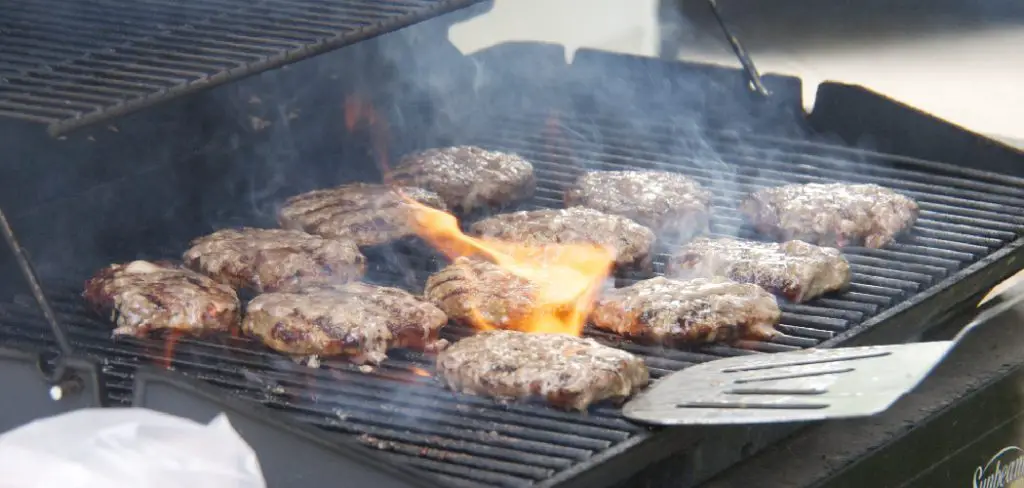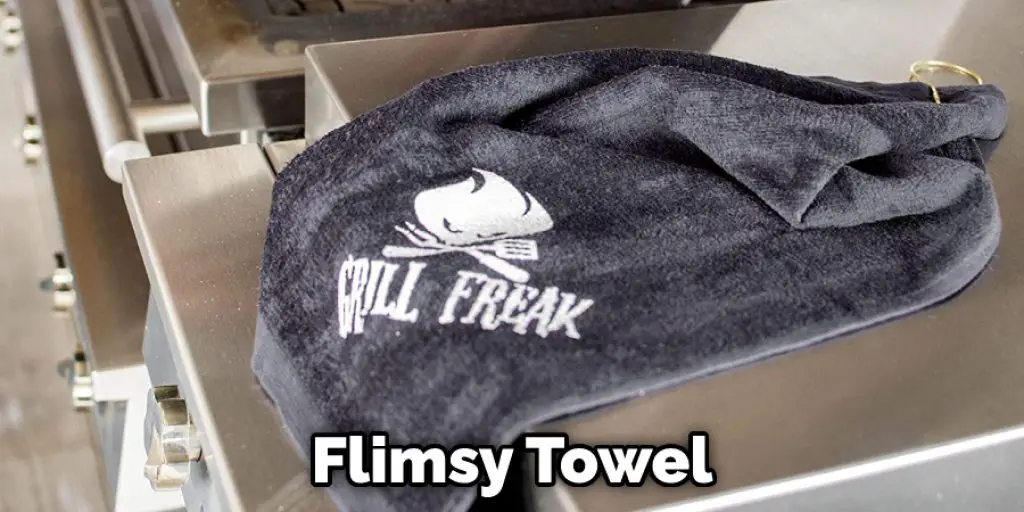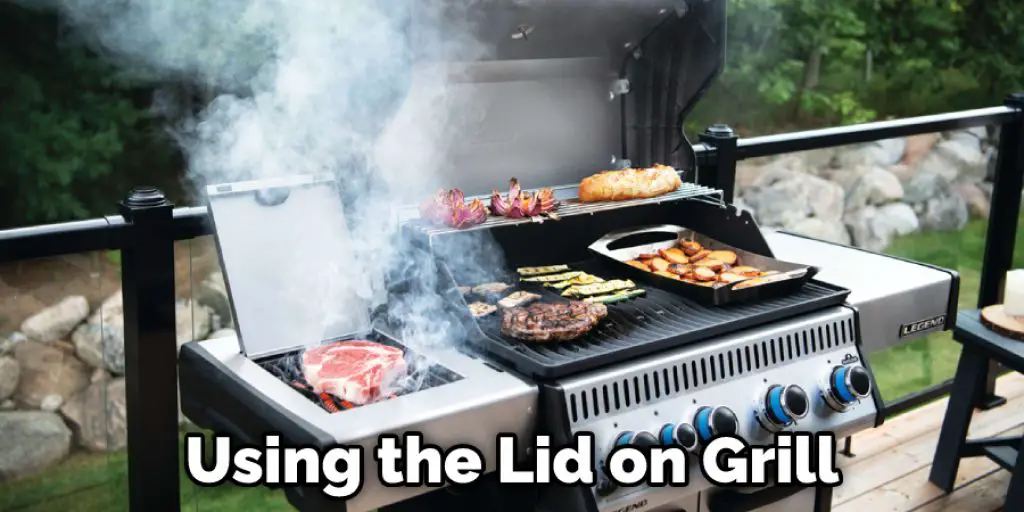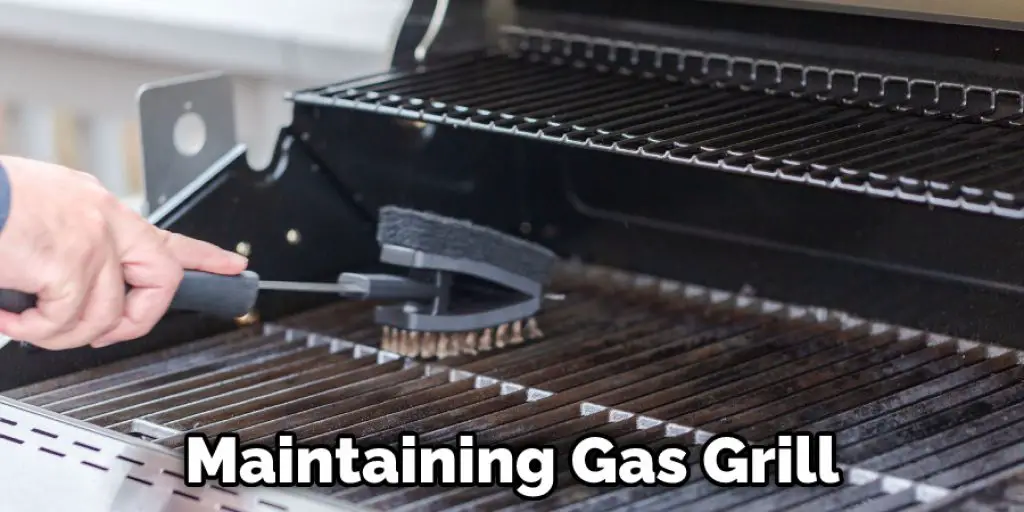Grease fires on gas grills are a common hazard for those who love to grill. Unfortunately, it can be hard to detect a small fire before it spreads and causes more damage than you bargained for. The following are a few simple yet effective steps to prevent these fires from ever happening.

It is also essential to always keep safety in mind when grilling and avoid leaving the grill unattended. Never grill indoors, and keep your barbecue covered when it’s not in use. So, this article is for you. You will learn how to prevent grease fires on gas grill with just one simple trick!
Step to Follow on How to Prevent Grease Fires on Gas Grill
Step One : Determine
First, you need to determine if your fire is a grease fire. A typical grease fire will create flames anywhere from 4-5 inches tall. The flames usually last for 10-20 seconds and then die back down to a smaller flame, which can also be easily smothered with the grill’s lid.
If the fire keeps reigniting, it is likely because the food, charcoals, or embers are still burning. In this case, you need to turn the grill off and let it burn out before trying to put out the smaller flames with a lid or baking soda. If there is no flame coming from your area of concern, but only thick, black smoke, then you have a charcoal fire.
It is also possible for your fire to be a coal or wood fire. In this case, you will need to remove the charcoal before putting out any flames. Once all of the hot charcoals have been removed from the grill, please do not open them back up due to the risk of carbon monoxide poisoning.
Step Two : Stay Calm

When you first feel the fire at your grill, it is essential to stay calm and realize that grease fires can be quickly put out. If your barbecue is equipped with a lid, the best step will be to place the lid over the flames and smother them out. This requires no active engagement.
If you do not have a lid or the flames are too big for the lid to work, you can try to extinguish the fire with baking soda. Pour a cup of baking soda over the flames and then quickly close the grill cover to suffocate the fire. If you have an oven mitt or thick towel, you can also try to smother the fire with it.
It is important to know that this method will not work if you try using a flimsy towel or oven mitt. You will always need something sturdy enough to stand up to the flames and not simply catch on fire. It is also important to remember that this method should only be used if you do not have a lid for your grill.
Step Three : Actively Put Out the Fire
If your fire is a small, contained fire in a controlled area, then you can put it out by smothering the flames with baking soda or another type of fire extinguisher. Pour a cup or two of baking soda over the flames and let them die out naturally.
If you do not have access to a fire extinguisher, try to use a lid or another heavy object to cover the flames and smother them out. If you are using this method, it is essential to make sure that you have a tight seal between the object and the grill.

This will help prevent any oxygen from getting to the fire and reigniting it. If you do not have a lid for your grill, do not go and get one. Instead, try to find something that will work as a substitute. These steps should help you learn how to prevent grease fires on gas grills.
Step Four : Check the Grill
Once you have successfully put out the fire, it is essential to check the grill for any remaining embers. These embers can quickly reignite and cause another fire. If you find any embers, carefully pour a bucket of water over them to extinguish them.
After that, it is crucial to allow the grill time to cool down. You can wait a couple of hours or even overnight before using it again. If you use the grill too soon after a grease fire, there is a risk that any leftover oil could catch on fire and cause another grease fire.
It is important to remember that grease fires can be quickly put out if you stay calm and take the appropriate steps. By following these simple steps, you can avoid any dangerous or destructive fires. Always remember to keep a close eye on your grill, especially when cooking with oils or fats.
Step Five : Clean Your Grill
Once you have allowed your grill to cool down, it is essential to clean the grill thoroughly. First, ensure that every part of the grill has been scrubbed with soap and water. This will remove all oils or any leftover residue from the fire.
After cleaning the grill, make sure to close it back up tightly and place a waterproof cover over it. This will help to protect the grill from any further damage and keep it in good condition for future use. Grease fires on gas grills can be dangerous and destructive, but they can also be easily prevented by taking the appropriate steps.
Once you have put out the fire, take proper steps to clean the grill. The last thing you want is for your barbecue to be contaminated with any leftover chemicals or debris from the fire. All of this information will help you learn how to prevent grease fires on gas grills.
You Can Check It Out to Take Propane Tank Off Grill
Step Six : Maintain Your Grill
To prevent any future grease fires it is important to start caring for your grill more regularly. Not only should you clean the grates after every use, but it is also a good idea to invest in an additional grate brush. This will help you get your grill ready for your next barbecue and ensure that there aren’t any leftover oils or fats that could catch on fire.

It is also essential to keep an eye on the condition of your grill. If you notice any corrosion or damage, it is best to take it to a professional for repairs. By correctly maintaining your grill, you can help to prevent any dangerous grease fires from happening in the future.
You can check it to Open a Gas Meter Lock Without Key
Frequently Asked Questions
Why Did My Gas Grill Catch on Fire?
There are a few potential reasons why your gas grill might have caught on fire. The most common reason is a problem with the fuel itself – if the gas doesn’t contain enough propane, it can start a fire when it mixes with the air. Another potential cause of a gas grill fire is an electrical issue – something as simple as a loose wire could spark an inferno. If you notice any of these signs or symptoms, please don’t hesitate to call your local fire department!
Can a Grease Fire Damage a Grill?
Yes, a grease fire can damage a grill. If the heat is too high or if there’s not enough air circulation, the oil and fat will start to ignite. This can quickly lead to an intense fire that may damage your grill either physically or chemically. In order for this type of disaster to be averted, make sure that you have a working smoke alarm and well-maintained grill controls.
Are You Supposed to Turn Off Propane Tank After Grilling?
Depending on the type of grill and tank you are using. However, generally speaking, it is best practice to turn off the propane tank after grilling in order for the gas to dissipate slowly and safely. This will help avoid any potential explosions or dangerous situations.
How Do You Stop a Gas Fire?
If you’re experiencing a gas fire, the first thing you should do is evacuate the area. Open doors and windows and turn off any lights that could spark the fire. You should also call 9-1-1 to report the emergency. Once you’ve evacuated the area, you can begin to try to put out the fire. If the gas is flammable, use a bucket of water or a fire extinguisher to put out the flames. If the gas is not flammable, use a garden hose to spray down the area around the fire.
Conclusion
Grease fires are one of the most common causes of house fires. To prevent this, you should clean your grill with a wire brush before cooking to remove any residue that may catch on fire later when it is hot enough. You can also use baking soda or salt as an alternative cleaning agent if you prefer not to use something abrasive like metal brushes.
Another way to avoid grease fires is by using high-quality cooking oils mixed with shortening that do not have the same risk factors as other cooking oils. The conclusion paragraph is informative and provides information on how to prevent grease fires on gas grills.
You may read it also – How to Light a Gas Grill With Broken Ignitor








